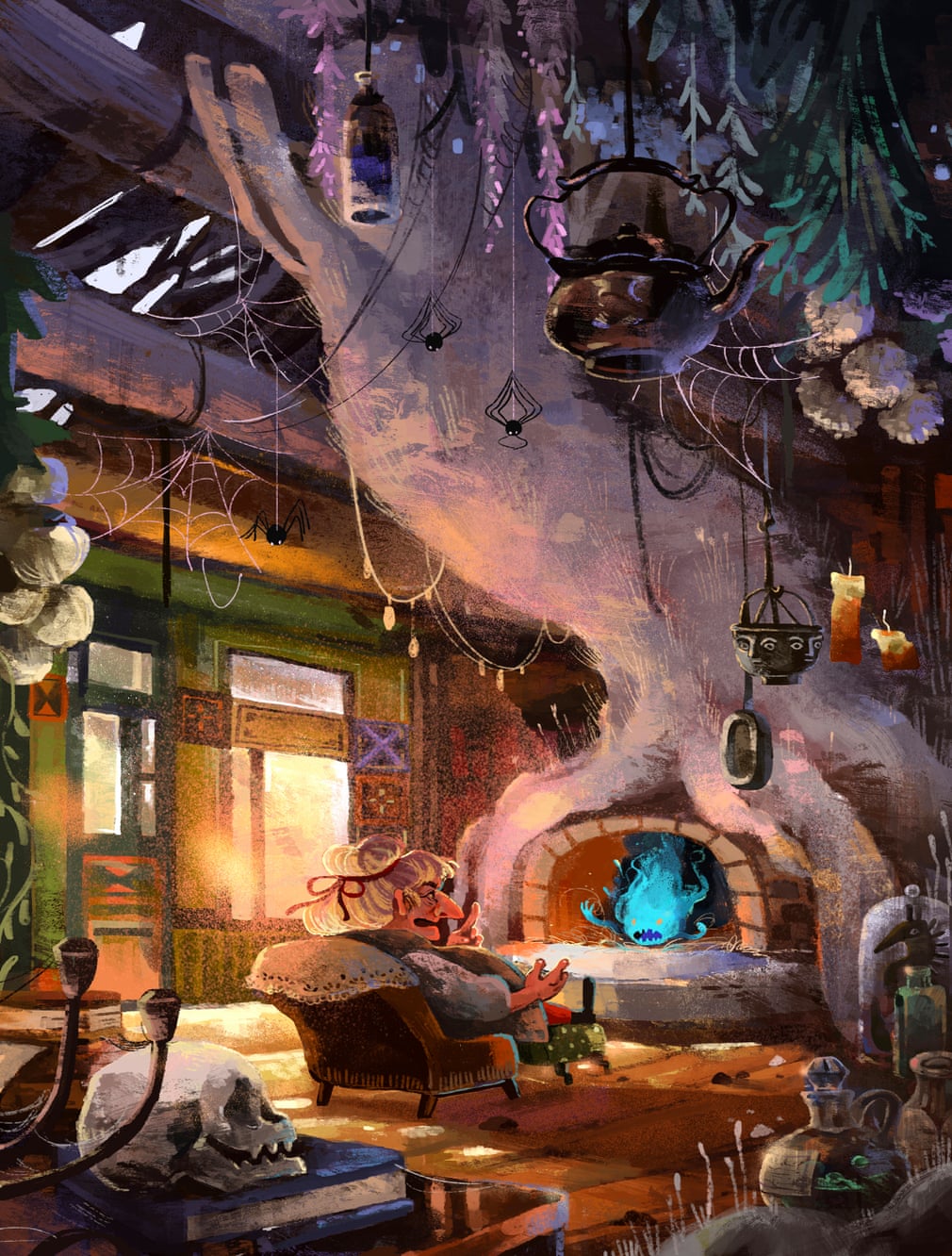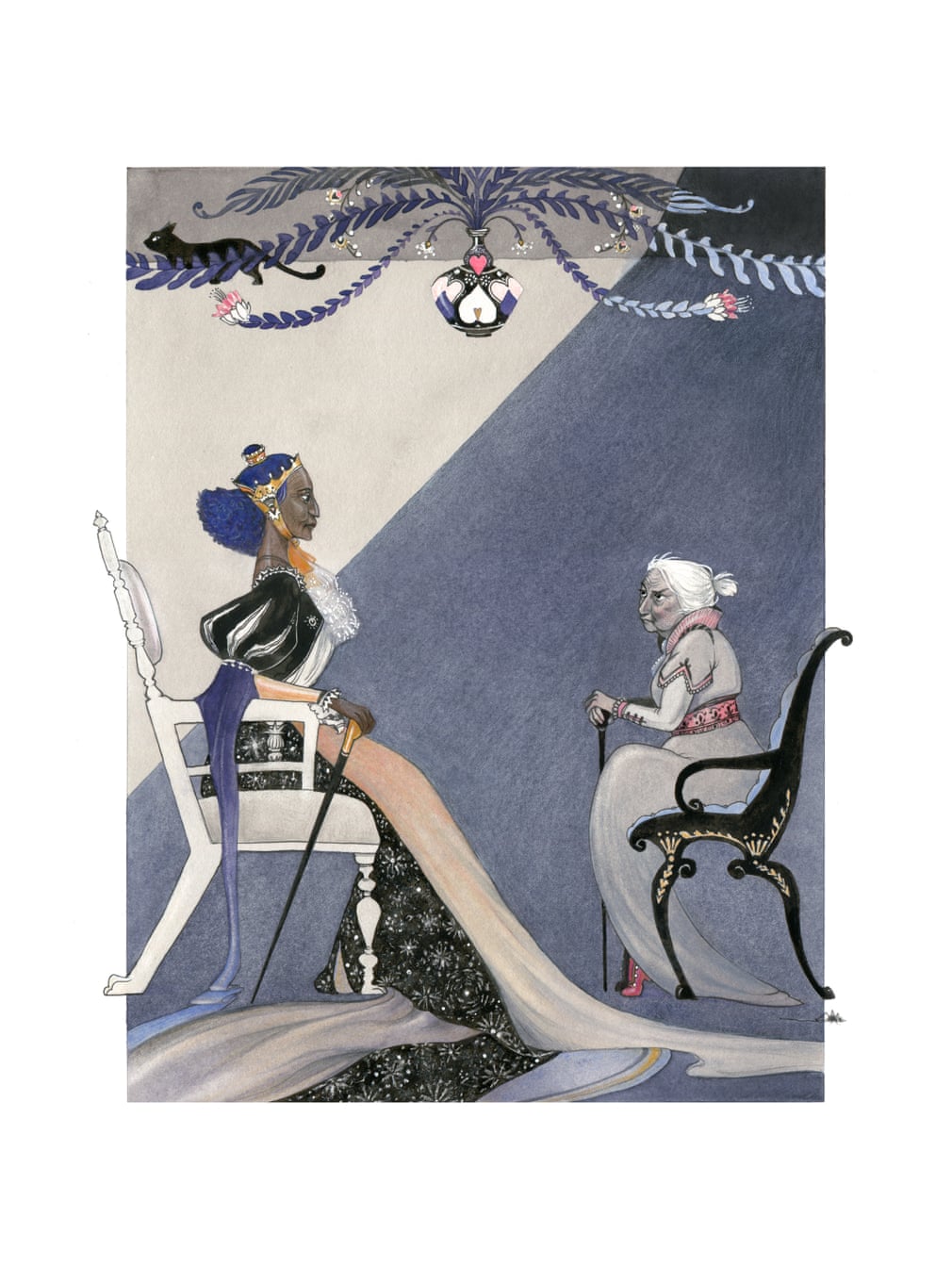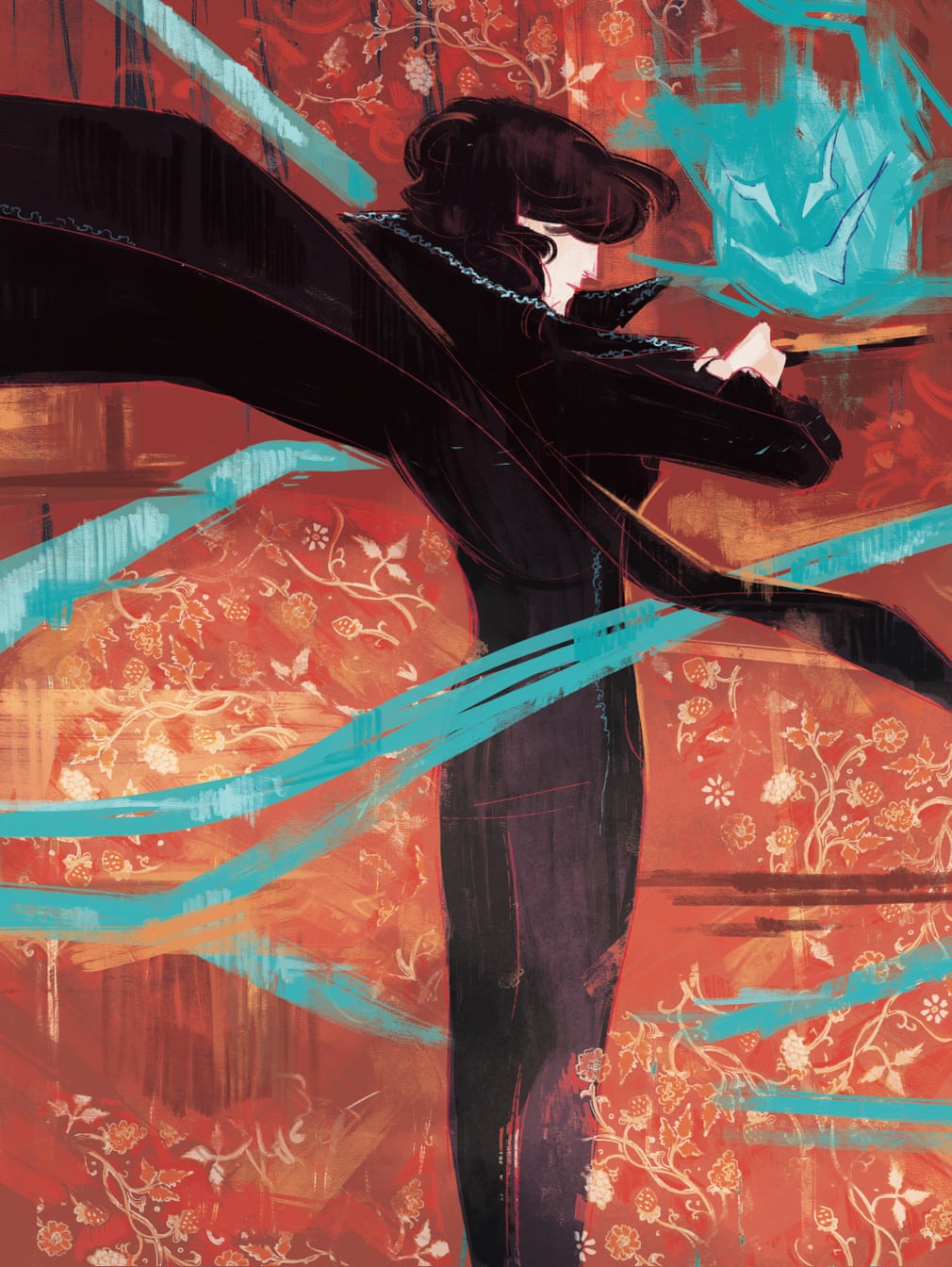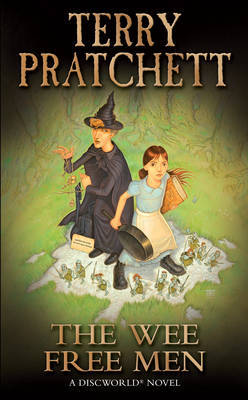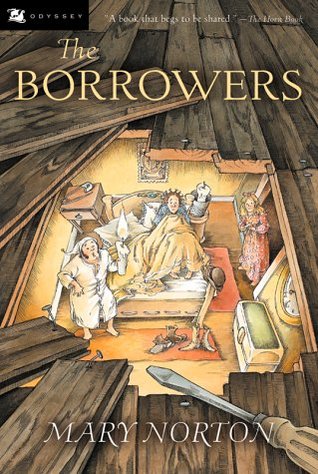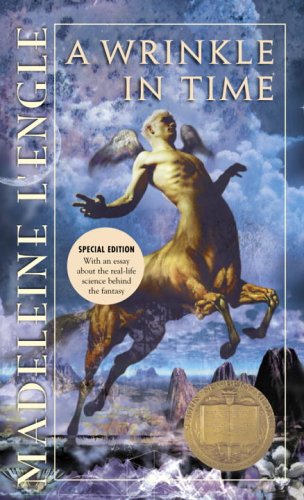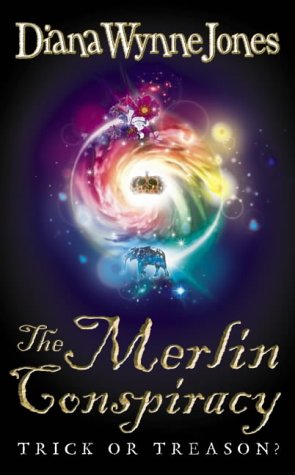I'm doling out the Diana Wynne Jones books I haven't read yet, saving them as treats for myself, knowing there won't be any more. (Although there is one coming out this year,
The Islands of Chaldea, which she had left unfinished on her death and was finished by her sister.)(It's an interesting story—the story of its completion, I mean. I look forward to reading the book.)
I read
The Merlin Conspiracy when it first came out (in 2003), not realizing that it had a prequel. (They call it a companion novel: the plots are entirely separate, but the events in
Deep Secret happen first, and the character of Nick Mallory makes a lot more sense in
Merlin if you get to know him first in
Secret.)
Deep Secret (1997) was re-released last year by Harper Collins with a cover to match the rest of their Diana Wynne Jones editions, and I bought it for myself at Christmas, happy to discover another book set in the Magid universe. (They'll probably come out with a matching paperback of
Merlin, which I'll want but won't be able to justify, since I already have the hardcover. Sigh.)
Deep Secret was a lot of fun. I'd say the universe of the Magids is a grown-up version of the Chrestomanci universe. The Magids are like a bunch of Chrestomancis trying to maintain the balance of magic among the worlds, only they're a little less omniscient and more hapless.
Deep Secret is told from the point-of-view of the youngest Magid, Rupert, who, of course, is given the least pleasant magid tasks, and he keeps screwing them up. His attempts to get things unravelled end him up at the Hotel Babylon where a sci fi convention is going on, and doesn't Jones just have fun skewering that world! (Very lovingly, though!) As with the Chrestomanci books, the forces of good in the universe work through the bungled messes everyone makes of things and the tangled plot threads get tied up very neatly despite Rupert's worst efforts. (If you enjoyed Gaiman's
Stardust, you'll appreciate this different take on the How Many Miles to Babylon nursery rhyme.)
The Merlin Conspiracy is set in an alternate British Isles, with a lot more magic than our world. There are some nasty people conspiring against the King, and only Roddy, Grundo and Nick (and the really annoying twins Isadora and Ilsabil) have any chance of stopping them. First they each have to learn how their own magic works (a common theme for Jones: if you think you're not talented, it's because your talent doesn't work the way everyone expects it to, so be patient and don't listen to them. Your talent might just be what saves the world.) It's a book crowded with magic, myth, elephants and salamanders, and a confusing number of plot threads that all affect each other in weird ways (that's what it has most in common with
Deep Secret). (They also both have really odious bad people—but then all Diana Wynne Jones books have really odious bad people. She doesn't do grand villains like Sauron or Voldemort, which are actually easier to defeat because of how grandly villainous they are. Odious people are another matter entirely.)
I liked
Deep Secret better than I liked
The Merlin Conspiracy, but when I reread
Merlin after reading
Secret, I enjoyed it a lot more than my first reading. I had always felt that I was missing something about
Merlin, and
Secret gave me the background I needed to put it in context. (Plus, you never get all of a Diana Wynne Jones book on one read—I should know that by now!)
Deep Secret is considered an adult book (I guess because the protagonist is an adult, and she mentions sex one or two times), and
The Merlin Conspiracy is a children's book (because it has children protagonists), but that didn't make a difference to me. I would say
Secret is funnier—it's more overtly satirizing our own world—, whereas
Merlin is more absurd: funny because it juxtaposes more and more random things, but potentially annoying if you want everything to just line up and make sense.
Deep Secret is one of those layered desserts people like to call Sex in a Pan, where you basically pick all your favourite desserty things like pudding and whip cream and nuts and cakey bits and caramel and shortbread and layer them on top of each other. Or, better yet, throw them all in a bowl and call it trifle. And
Merlin Conspiracy is a one-pot meal where all your favourite vegetables and meat cook together to make some sort of delicious soup or stew. They both have lots of the best ingredients, apparently randomly thrown together, and they're both more than the sum of their parts.
These might not be the first books I'd recommend if you've never read Diana Wynne Jones. (Start with
Howl's Moving Castle,
Charmed Life, or
The Dark Lord of Derkholm.) But they are satisfying meals for fans who want to spend more time in a DWJ universe.



